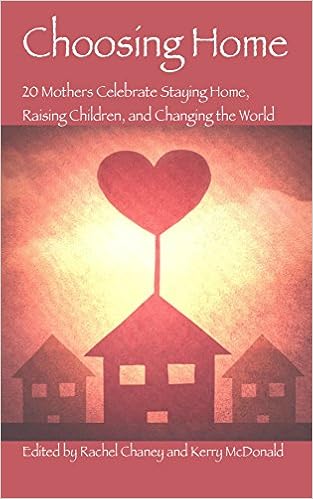In an often-cited 2004 study by Nobel prize-winner, Daniel Kahneman, working mothers ranked "taking care of my children" as the second most-negative activity on a list of 16.
Where does this cultural antipathy toward caring for our children come from?
I think there are a lot of contributing factors, not the least of which is schooling. As John Taylor Gatto, former New York State Teacher of the Year and author of several influential books including, Dumbing Us Down: The Hidden Curriculum of Compulsory Schooling, writes: "Government schooling is the most radical adventure in history. It kills the family by monopolizing the best times of childhood and by teaching disrespect for home and parents."
The trouble is that by monopolizing the "best times of childhood," and increasingly doing so at earlier ages and for longer portions of the day, it becomes a vicious circle: parents get limited time with their children which can make it more difficult to parent, and the time they do get are the bookends of a busy day when everyone is tired or grouchy or stressed or preoccupied. Children--and parents--may not be at their finest when rushing out in the morning or returning home after a long day, and it can make parenting seem like a chore to be outsourced.
It may appear counterintuitive but the antidote to parenting that seems more like a chore than a joy is more time with our children, not less. Bringing our children closer, spending more time with them, getting to know their quirks and peccadilloes, can make being with our children more enjoyable and rewarding than we ever thought possible. It's a truth many homeschooling families shout from the rooftops: the more you're with your children, the more you enjoy being with your children.
I think the other related issue to a lack of joy in modern parenting is stress. There seems to be a lot of cultural pressure to do more, be more, provide more for children than ever before. Parents may actually want to spend more time with their children but feel the pressure to enroll their children in all sorts of extra-curricular activities--on top of already packed weeks--to make sure their children are given every possible advantage. While our intentions may be good, the result of these over-scheduled, institutionalized little lives can be seen in declining childhood mental health.
As Boston College psychology professor, Dr. Peter Gray, writes:
"In the late 19th and early 20th century, many people became concerned about the ill effects of child labor on children’s development and wellbeing, and laws were passed to ban it. But now we have school, expanded to such a degree that it is equivalent to a full-time job—a psychologically stressful, sedentary full-time job, for which the child is not paid and does not gain the sense of independence and pride that can come from a real job."Gray goes on to write that "increased schooling, coupled with decreased freedom outside of school, correlates, over decades, with sharply increased rates of psychiatric disorders in young people, including major depression and anxiety disorders."
This critical correlation is also addressed in Jay Griffiths's eloquent book, A Country Called Childhood, where she writes:
"Children need wild, unlimited hours but this unenclosed time is in short supply for many, who are diarized into wall-to-wall activities, scheduled from the moment they wake until the minute they sleep, every hour accounted for by parents whose actions are prompted by the fear that their child may fall behind in the rat-race which begins in the nursery… Society instills a fear of the future which can only be appeased by sacrificing present play and idleness, and children feel the effects in stress and depression." (p. 109). (Here is a link to a positive New York Times book review on Griffiths's must-read book.)
Perhaps the remedy to all of this stress--all of this dislike of parenting and childcare, and the associated decline in children's mental health--is simple: Be with our children. Just be with them. Bring them closer, bring them home, lessen their loads, grant them unenclosed time and space, let them play, let them dream.
We may be surprised to discover that our children are much happier. And so are we.
























You nailed it on the head... We have put so many things ahead of family that we are seeing the ill affects of those choices resounding in our society again and again. I love being with my kids, I get antsy when I am away for too long and I love, love, love that they enjoy being with me as much as I do them. Thanks for writing this. It's a message that so few articulate.
ReplyDeleteI think this is fabulous and completely true. My husband and I have often remarked how interesting it is that parents are so quick to rush their kids off to school every fall. We've just begun homeschooling our four this year and while I need breaks from my kids like anyone else, this whole "get rid of the kids" thing is troubling. I feel really strongly about this topic. I think we're headed down the wrong path with our kids. Scheduling their every second and insisting we can't take care of them ourselves is not the answer. Thanks for your post!
ReplyDelete100% agree with this. Women all over the world fought for the right to go to work, only to realise (few generations later) that staying home with your kids is more important. I too realized that and I do not blame my mom for working and spending any time she had with me (as a single parent), BUT and there's a HUGE emphasis on this 'but' I feel a lot closer to my grandma - the one she had the time to teach me the a,b,c's and 1,2,3's and shared so many stories from her childhood and we read together at bedtime...all memories that are very blurry when it comes to talking about my mom. Mom was my support later in life, highschool and after times...Grandma will always be my ma', as I still call her!
ReplyDelete